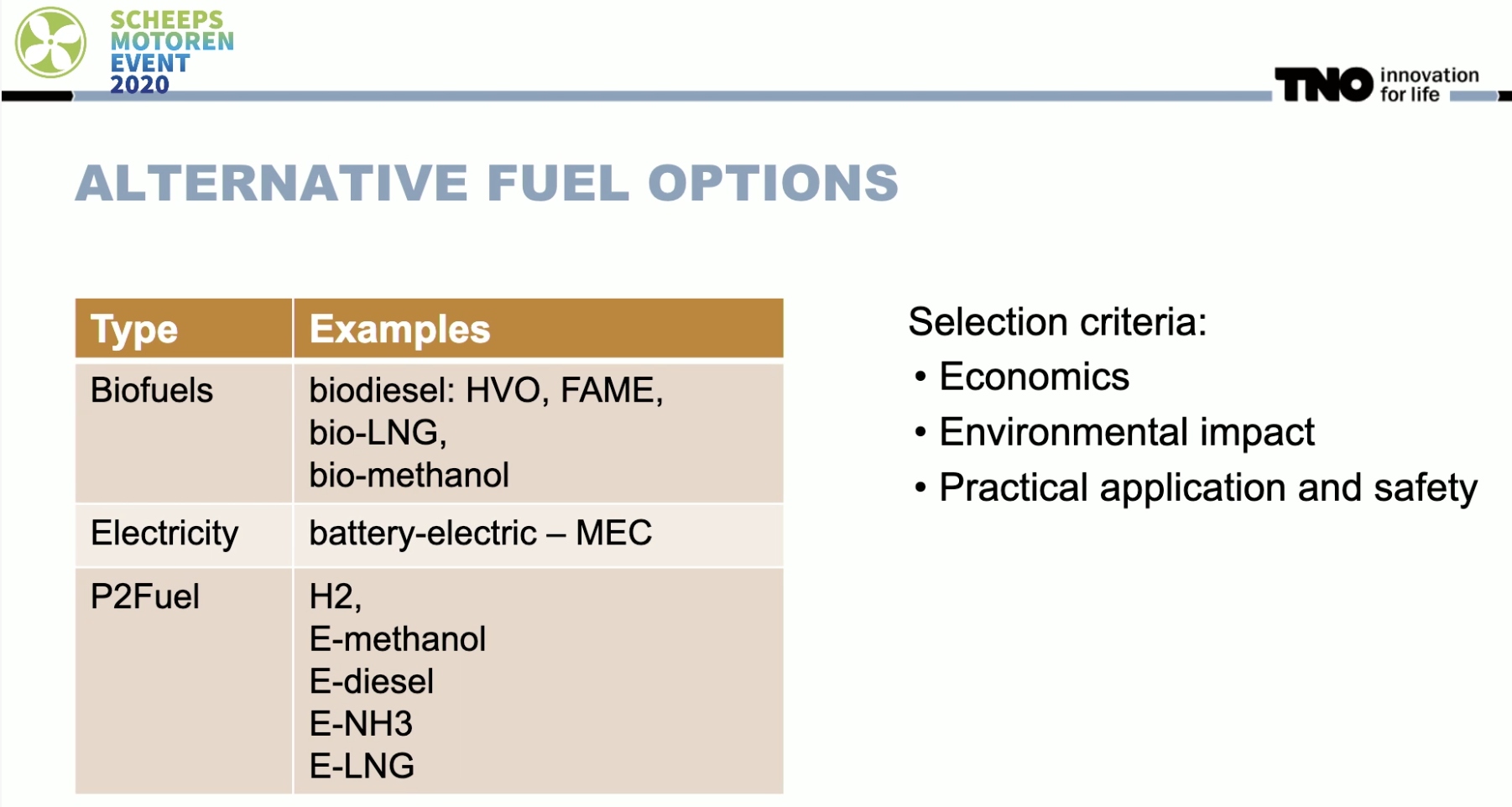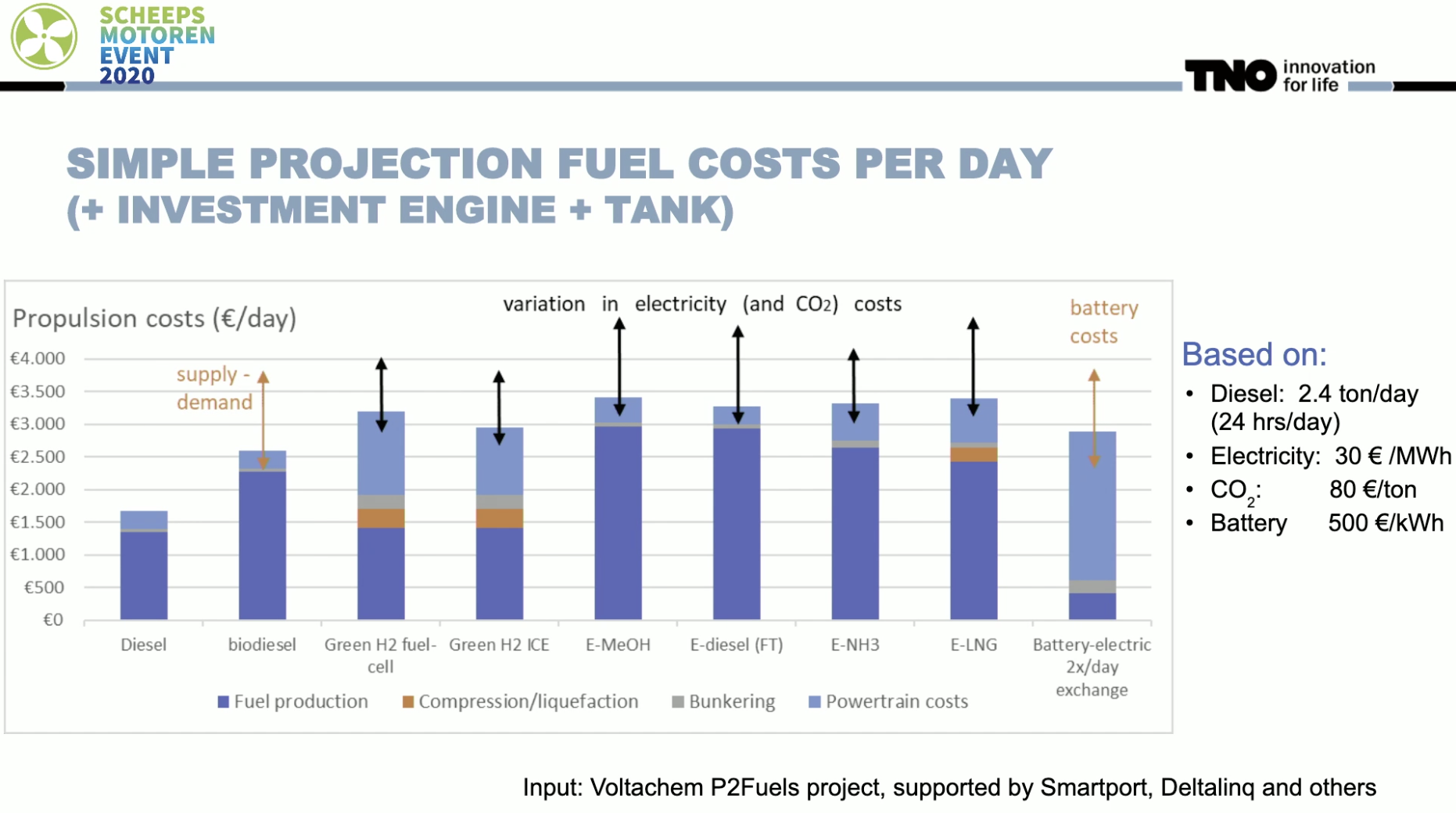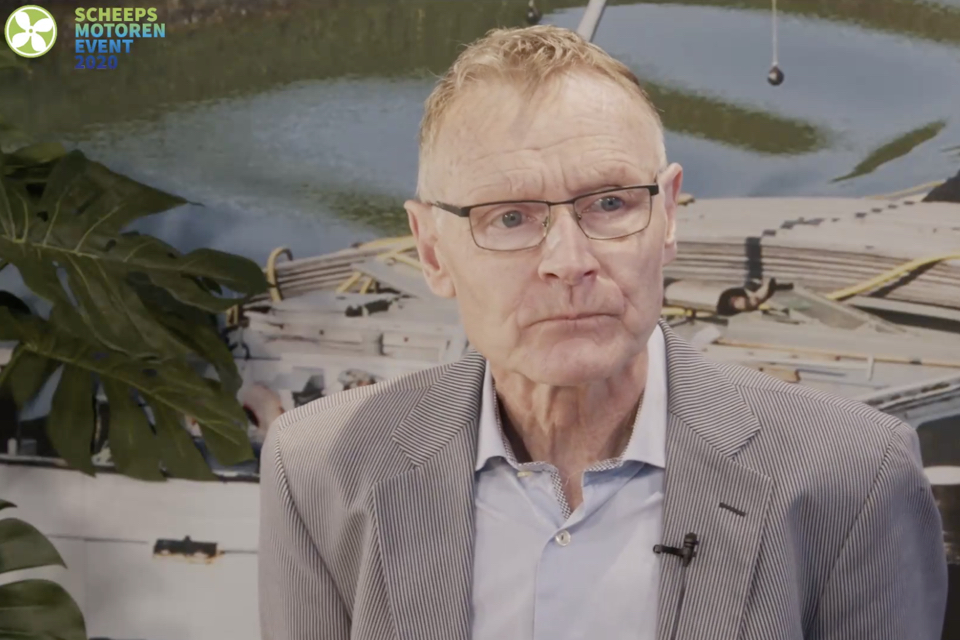‘Greening inland navigation will cost a lot of money,’ says Ruud Verbeek, Senior Technical Consultant at TNO. In addition, the alternative fuels specialist expects there will be a shortage of biofuels from 2030, which will push the need for Power-to-fuels or E-fuels.
Verbeek was one of the speakers on the first day of the Ships’ engines event (Scheepsmotorenevent), an event organised by Dutch inland navigation newspaper Schuttevaer and of which SWZ|Maritime acted as a partner.
‘For an alternative fuel to be useable, it has to have a high enough energy content,’ explains Verbeek. ‘In this respect, we have been spoiled by diesel fuels, which have a high energy content. When you look at LNG or methanol, this easily becomes a factor 2 lower.’ Whether a fuel is a viable option depends on economics, environmental impact, practical application and safety. Verbeek says TNO is researching the following fuels:

The fuels TNO is investigating.
In addition, there is the question of space on board. Verbeek: ‘You can store diesel in any form as it is atmospheric. LNG requires a cylindrical, isolated tank taking up much more space.’ This space should be taken into account in the ship design, also when a future switch to an alternative fuel is on the cards.

Space needed for alternative fuels with diesel as benchmark.
When it comes to using an alternative energy source such as battery containers, this space should be easily accessible. ‘Inland ships usually bunker diesel once a week or once every two weeks. When you use batteries, you have to change the battery containers once or twice a day. This makes fast exchange essential,’ explains Verbeek.
Sustainable shipping is expensive
Verbeek has compared the cost of different fuels to diesel costs in the graph below. ‘Of course, this graph is based on a 100 per cent switch, which could also be in part. This would reduce the cost difference,’ adds Verbeek.

Cost of different fuels compared to diesel.
All in all, it is safe to say, switching to a different fuel does not come cheap. ‘However, the additional costs could be paid from a European commitment. A large part of the costs will then be apportioned over the total diesel pool. This is already the case for road transport, but not yet for inland navigation. Under the Renewable Energy Directive, oil companies are required to supply a specified amount of bio-fuel. All new, alternative fuels could fall under such an obligation,’ says Verbeek.
He adds that the Ministry of Infrastructure and Water Management is already looking into this. It should however be a European effort to ensure a level playing field across the different European countries.
Switch to new fuels will take a long time
When asked if we will ever be able to shake diesel fuels altogether, Verbeek expects this will be possible, but it will take a long time. Verbeek: ‘When it comes to the amounts available, switching over is a possibility as inland navigation is not as big a user as road transport for example. The question is, what’s politics going to do?’
He expects there will be a shortage of bio-fuels from 2030 as ‘other industries such as the chemical sector will also want to use bio-mass as a resource. We are facing a huge challenge to supply all sectors with enough bio-fuels.’
‘That is why we will have to move to E-fuels, or synthetic fuels. However, this will certainly take decades, because you will have to build up an enormous capacity,’ Verbeek concludes.








